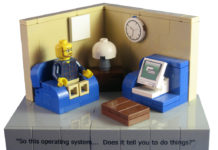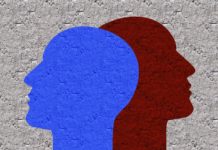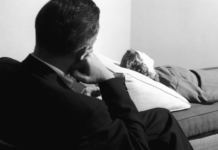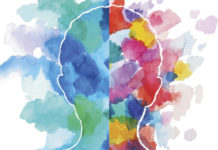Hearing Voices, Emancipation, Shamanism and CBT: Thoughts After Douglas Turkington’s Training
When Doug Turkington, a UK psychiatrist, first announced to his colleagues that he wanted to help people with psychotic experiences by talking to them, he was told by some that this would just make them worse, and by others that this would be a risk to his own mental health, and would probably cause him to become psychotic! Fortunately, he didn’t believe either group, and in the following decades he went on to be a leading researcher and educator about talking to people within the method called CBT for psychosis.
Large RCT for Humanistic Psychotherapy Receives Funding
Professor Mick Cooper from the University of Roehampton in London has been majority-funded by the Economic and Social Research Council to conduct and extensive...
New Thinking Questions Gold Standard Status for CBT
From Forbes: According to an article published in the Journal of the American Medical Association, cognitive behavioral therapy should no longer be the routine first choice...
How Does Mindfulness Work?
A new study explores how mindfulness impacts self-compassion and meaning in life to increase mental health and wellbeing.
JAMA Article Challenges CBT as Gold Standard for Psychotherapy
A review of CBT research findings raises questions about its status as the “evidence-based” psychotherapy of choice.
Mindfulness Therapy Can Prevent Depression Relapse, Review Finds
Mindfulness-based cognitive therapy (MBCT) may be more effective at reducing the risk of depressive relapse compared to current standard treatments with antidepressant drugs. A...
Screen Time Linked to Increased Depressive Symptoms Among Teens
New study examines how increased screen time and social media may be contributing to depressive symptoms and suicide risk in teens
Humanistic Counseling Effective in Schools, Study Finds
Pilot study finds school-based humanistic counseling reduces emotional symptoms in students.
“New Counseling Toolkit Helps Boys and Girls Club Address Kids’ Real-Life Issues”
The staff at Minneapolis’ Southside Village Boys and Girls Club are implementing a specially targeted free interactive counseling toolkit designed by a team of volunteers...
Helpful and Harmful Therapist Behaviors, According to Clients
From The British Psychological Society: A recent study has broken new ground by asking clients to provide detailed feedback on a second-by-second basis of their experience of...
Mindfulness and Self-Compassion Interventions Target Depressive Symptoms
A new study finds self-coldness predicts depressive symptoms and supports self-compassion as a buffer.
Letters to the Editor: “The Treatment of Choice”
Readers respond to the New York Times article, “The Treatment of Choice,” about innovative programs for psychosis and schizophrenia that involve patients and their families in treatment decisions. “Narratives of success counter a drumbeat of faulty links of mental illness and violence, inaccuracies which serve only to further stigmatize and isolate individuals with psychiatric illness.”
Social Prescribing May Improve Self-Esteem and Mental Well-Being
Systematic review suggests social prescribing benefits individuals with mental and physical health issues, but more program evaluations are needed.
Emotions: Keys to Our Freedom
Living in this very complex, demanding, stratified modern society has produced an epidemic of personal alienation. There is often a tragic gulf between our emotional experience and our awareness of it. 1 in 5 Americans are now taking a psychiatric medication. 1 in 4 women are now taking a psychiatric medication. All of those medications suppress, modify, or block emotion.
Therapy More Effective than Medications for Anxiety — Placebos Also Effective
One-on-one Cognitive Behavioral Therapy is better than psychiatric medications or other common psychotherapeutic interventions for severe anxiety disorders in adults, according to a large...
Majority of Youth Prescribed Antipsychotics Have No Psychiatric Diagnosis
The majority of children, adolescents and young adults prescribed antipsychotic medications have not been diagnosed with a mental disorder, according to a recent study published in JAMA Psychiatry.
Researchers Say You Might as Well be Your Own Therapist
From Quartz: Therapists may play a less significant role in mental health treatment than previously thought. A recent study found no significant difference in treatment outcomes...
“Study Suggests Shift in Focus in Cognitive Behavior Therapy”
A new research study examines the relationships that makes cognitive behavior therapy (CBT) successful.
“Loneliness May Warp Our Genes, And Our Immune Systems”
NPR reports how loneliness can change our bodies and affect our physical and mental health. "There are things we can do to get out of a depressed or lonely state, but they're not easy," they report. "Part of the reason is because these negative psychological states develop some kind of molecular momentum."
Researchers Advocate for More Robust Informed Consent in Psychotherapy
Paper outlines recommendations for more thorough informed consent process in psychotherapy, which authors proclaim is an “ethical imperative."
Industry Funded Trials Favor Drugs Over Psychotherapy
The researchers conclude that industry funding appears to bias studies towards pharmacotherapy over psychotherapy for the treatment of depression.
Interventions that Promote Disclosure Among Voice-Hearers
The perspectives of the voice-hearers featured in the research underscore that stigma and negative perceptions of voice hearing present significant obstacles within early intervention programs.
New Findings Suggest Masculinity is a Risk Factor for Suicidal Thinking
Men who report being self-reliant may be at greater risk of suicidal thinking.
Clinical Guidelines for Depression Need Urgent Revision
A coalition of 35 health organizations expressed serious concerns that the NICE guideline for adult depression may cause clinical harm—they demand “full and proper” revisions.
How Feedback Can Improve Psychotherapy Treatment
Researcher examines the impact of client feedback and progress assessment on improvement in outcomes.
























